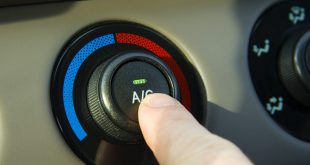
The number of calories you need to eat each day depends on several factors, including your age, size, height, sex, lifestyle, and overall general health.
As an example, a physically active 6ft 2in male, aged 22 years, requires considerably more calories than a 5ft 2ins sedentary woman in her 70s.
It has been discovered that factors such as how you eat your food can influence how many calories get into your system. The longer you chew your food, the more calories the body retains, a team from Purdue University found.
If you would like to learn more about calories – what they are and what they are important for – you might want to take a look at our Knowledge Center article all about calories. The rest of this article will discuss how your body uses calories and how many your body might need to achieve optimum energy levels.
Contents of this article:
- Recommended daily calorie intakes
- Calorie intake calculator
- How much should you weigh?
Fast facts on daily calorie intake
Here are some key points about daily calorie intake. More detail and supporting information is in the main article.
- Recommended calorie intake depends on factors such as age, size, height, sex, lifestyle and overall general health.
- The longer you chew your food, the more calories your body retains.
- Recommended daily calorie intakes in the US are 2,700 for men and 2,200 for women.
- Eating a big breakfast could help with weight reduction and maintenance.
- When food is eaten may matter as much as what and how many calories are eaten.
- Average calorie consumption in industrialized nations and a growing number of emerging economies is higher than it used to be.
- Approximately 20% of the energy used in the human body is for brain metabolism.
- Ideal body weight depends on several factors including age, bone density and muscle-fat ratio.
- The types of food that calories are acquired from are highly important in terms of nutrition.
- A 500-calorie meal consisting of fruits and vegetables is much better for your health and will keep you from being hungry for longer than a 500-calorie snack of popcorn.
Recommended daily calorie intakes
Recommended daily calorie intakes vary across the world. According to the National Health Service (NHS), UK, the average male adult needs approximately 2,500 calories per day to keep his weight constant, while the average adult female needs 2,000. US authorities recommend 2,700 calories per day for men and 2,200 for women.
The NHS stresses that rather than precisely counting numbers (calories), people should focus more on eating a healthy and well balanced diet, being physically active, and roughly balancing how many calories are consumed with the numbers burnt off each day. If you eat your five portions of fruit and vegetable per day, you will probably live longer, Swedish researchers reported in the American Journal of Clinical Nutrition (July 2013 issue).
According to the United Nations’ Food and Agriculture Organization (FAO), the average person’s minimum calorie requirement per day globally is approximately 1,800 kilocalories (7,500 kJ).

Daily calorie consumption varies considerably around the world
(countries in gray indicates “no data available”). Image by Interchange88
Over the last twenty years, sugar has been added to a growing number of foods we consume. Unfortunately, food labels in the USA and Europe do not include details on how much added sugar there is . Dr Aseem Malhotra, a cardiologist, wrote in BMJ in June 2013 that “(it has become) almost impossible for consumers to determine the amount of added sugars in foods and beverages.”
Timing could be as important as how many calories you eat
A big breakfast helps bring your weight down or keep it down – researchers from Tel Aviv University explained in the medical journal Obesity that a large breakfast – one containing approximately 700 calories – is ideal for losing weight and reducing your risk of diabetes, heart disease, and high cholesterol.
When we eat our food probably matters as much as what and how many calories we eat, team leader Prof. Daniela Jakubowicz added.
Portion sizes
In industrialized nations and a growing number of emerging economies, people are consuming many more calories than they used to. Portion sizes in restaurants, both fast food ones as well as elegant places, are far greater today.

The average cheeseburger in the USA 20 years ago had 333 calories, compared to the ones today with over 600 calories
What is the difference between calories and kilocalories?
Scientifically speaking, one kilocalorie is 1,000 calories. However, the term calorie in lay English has become so loosely used with the same meaning as kilocalorie, that the two terms have virtually merged. In other words, in most cases, a calorie and kilocalorie have the same meaning.
A kilocalorie is the amount of energy required to raise the temperature of 1 kilogram of water from 15° to 16° Celsius (centigrade) at one atmosphere.
A “small calorie” refers to the traditional scientific term of calorie, meaning one-thousandth of a kilocalorie.
Internationally, most nations talk about food energy in kJ (kilojoules). 1 kcal (kilocalorie) = 4.184 kJ.
In this article, the term “calorie” means the same as “kilocalorie” or “kcal”.
Your daily calorie requirement
To work out a figure for your daily calorie requirement, we apply levels of physical activity to the equation as per the guide below. If you have entered information into the calculator above, you’ll see your personal calculations:
- Sedentary lifestyle – if you do very little or no exercise at all
Your daily calorie requirement is BMR x 1.2.
- Slightly active lifestyle – light exercise between once and three times per week
Your daily calorie requirement is BMR x 1.375.
- Moderately active lifestyle – if you do moderate exercise three to five days per week
Your daily calorie requirement is BMR x 1.55.
- Active lifestyle – if you do intensive/heavy exercise six to seven times per week
Your daily calorie requirement is BMR x 1.725.
- Very active lifestyle – if you do very heavy/intensive exercise twice a day (extra heavy workouts
Your daily calorie requirement is BMR x 1.9.
The human body and energy usage
For the human body to remain alive, it requires energy. Approximately 20% of the energy we use is for brain metabolism. The majority of the rest of the body’s energy requirements are taken up for the basal metabolic requirements – the energy we need when in a resting state, for functions such as the circulation of the blood and breathing.
If our environment is cold, our metabolism increases to produce more heat to maintain a constant body temperature. When we are in a warm environment, we require less energy.
We also require mechanical energy for our skeletal muscles for posture and moving around.
Respiration, or specifically cellular respiration refers to the metabolic process by which an organism gets energy by reacting oxygen with glucose to produce carbon dioxide, water and ATP energy. How efficiently energy from respiration converts into physical (mechanical) power depends on the type of food eaten, as well as what type of physical energy is used – whether muscles are used aerobically or anaerobically.
Put simply – we need calories to stay alive, even if we are not moving, and need calories to keep our posture and to move about.
How much should you weigh?
As with how many calories you should consume, your ideal body weight depends on several factors. These include your age, sex, bone density, muscle-fat ratio, and height.
- BMI (Body Mass Index) – some say BMI is a good way of working out what you should weigh. However, BMI does not take into account muscle mass. A 100-metre Olympic champion weighing 200 pounds (about 91 kilograms), who is 6 feet (about 1mt 83cm) tall, who has the same BMI as a couch potato of the same height, is not overweight, while the couch potato is overweight.
- Waist-hip ratio – this measurement is said to be more accurate at determining what your ideal weight should be, compared to BMI. However, waist-hip ratio does not properly measure an individual’s total body fat percentage (muscle-to-fat ratio), and is also limited.
- Waist-to-height ratio – this way of determining ideal body weight is probably the most accurate one available today. It was presented by Dr. Margaret Ashwell, ex-science director of the British Nutrition Foundation, and team at the 19th Congress on Obesity in Lyon, France, on 12th May, 2012. It is also a very simple calculation; easy for lay people to work out.
Dr. Ashwell’s team found that:
“Keeping your waist circumference to less than half your height can help increase life expectancy for every person in the world.”
Put simply, to achieve and/or maintain your ideal body weight, “Keep your waist circumference to less than half your height.”
If you are a 6ft (183cm) tall adult male, your waist should not exceed 36 inches (91 cm).
If you are a 5ft 4 inches (163 cm) tall adult female, your waist should not exceed 32 inches (81 cm)
How do I measure my waist? – according to the World Health Organization (WHO), you should place the tape-measure half-way between the lower rib and the iliac crest (the the pelvic bone at the hip).
Calories and different diets

Taking 500 calories from this dish is much better for the health, preventing hunger, and maintaining a healthy body weight than the equivalent calories in popcorn with butter or toffee
Simply counting calories, and ignoring what you put in your mouth might not lead to good health.
Insulin levels will rise significantly more after consuming carbohydrates than after eating fats (no rise at all) or protein. Some carbohydrates, also known as carbs, get into the bloodstream in the form of sugar (glucose) much faster than others. Refined flour is a fast carb, while coarse oatmeal is slow. Slow-release carbs are better for body weight control and overall health than fast carbs.
A 500-calorie meal of fish/meat, salad, and some olive oil, followed by fruit, is much better for your health and will keep you from being hungry for longer than a 500-calorie snack of popcorn with butter or toffee.
There are several diets today which claim to help people lose or maintain their body weight. Some of these have been extremely successful and good for participants, but are notoriously difficult to adhere to long-term.
Medical News Today recently published an article discussing the “Eight Most Popular Diets”. The rankings were based upon how many articles mentioned them favorably, how popular they were generally and which ones received the most positive feedback.
Source: medicalnewstoday
 We are sharing information for knowledge. Presented by. SocialDiary.Net
We are sharing information for knowledge. Presented by. SocialDiary.Net



